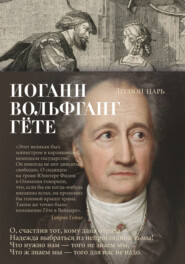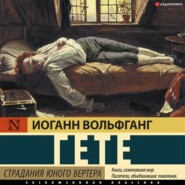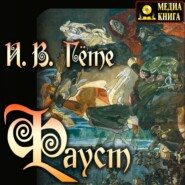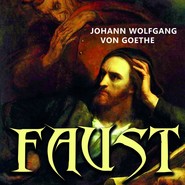По всем вопросам обращайтесь на: info@litportal.ru
(©) 2003-2024.
✖
Autobiography: Truth and Fiction Relating to My Life
Настройки чтения
Размер шрифта
Высота строк
Поля
That is to say, he was a Calvinist, as distinguished from a Lutheran. – TRANS.
15
The diminutive of Margaret. – TRANS.
16
That is to say, a poem written for a certain occasion, as a wedding, funeral, etc. The German word is /Gelegenheitsgedicht/." – TRANS.
17
The "/new/ Abelard" is St. Preux, in the Nouvelle Héloise of Rousseau. – TRANS.
18
A class of attendants dress in Hungarian costume. – TRANS.
19
A sort of buffoon.
20
This word, which signifies something like our "bully," is specially used to designate a fighting student. – TRANS.
21
Literally, "to strike two flies with one flapper." – TRANS.
22
The river on which Halle is built. – TRANS.
23
The river near Leipzig. – TRANS.
24
Leipzig was so called, because a large and influential portion of its citizens were sprung from a colony of Huguenots, who settled there after the revocation of the edict of Nantes. – /American Note/.
25
That is to say, the influence of Gottsched on German literature, of which more is said in the next book. – TRANS.
26
Die Laune des Verliebten, translated as The Lover's Caprice, see p. 241.
27
"/Exposition/," in a dramatic sense, properly means a statement of the events which take place before the action of the play commences. – TRANS.
28
The real meaning of the passage is, that the idiom "Possen reissen" is used also with the university word "Suite," so that one can say "Suiten reissen." – TRANS.
29
The lecture-room. The word is also used in university language to denote a professor's audience.
30
The humor of the above consists, not in the thoughts, but in the particular words employed. These have no remarkable effect in English, as to us the words of Latin origin are often as familiar as those which have Teutonic roots; and these form the chief peculiarity of the style. We have therefore given the poem in the original language, with the peculiar words (as indicated by Goethe) in Italics, and subjoin a literal translation. It will be observed that we have said that the peculiarity consists /chiefly/, not /solely/, in the use of the foreign words; for there are two or three instances of unquestionably German words, which are Italicized on account of their high-sounding pomp.
"O Hendel, whose fame extends from /south/ to /north/, hear the /paean/i> which ascends to thine ears! Thou bakest that which /Gauls/ and /Britons/ industriously seek, (thou bakest) with /creative genius original/ cakes. The /ocean/ of coffee which pours itself out before thee is sweeter than the juice which flows from /Hymettus/. Thy house, a /monument/, how we reward the arts, hung round with /trophies/, tells the nations: 'Even without a /diadem/, Hendel formed his fortune here, and robbed the /Cothurnus/ of many an eight-groschen-piece.' When thy /urn/ shines hereafter in majestic /pomp/, then will the /patriot/ weep at thy /catacomb/. But live! let /thy/ bed (/torus/) be the /nest/ of a noble brood, stand high as /Olympus/, and firm as /Parnassus/. May no /phalanx/ of Greece with Roman /ballistoe/ be able to destroy /Germania/ and Hendel. Thy /weal/ is our /pride/, thy /woe/ our /pain/, and Hendel's /temple/ is the /heart/ of the /sons of the Muses/." – TRANS.
31
Bildende und Redende Kunst." The expression "speaking art" is used to produce a corresponding antithesis, though "/belles-lettres/ would be the ordinary rendering. – TRANS.
32
"Pratische Philosophen, bewusstlose Weltweisen." It is impossible to give two substantives, as in the original, since this is effected by using first the word of Greek, then the word of German origin, whereas we have but one. – TRANS.
33
Winckelmann was assassinated. – TRANS.
34
"Das Werden," the state of becoming, as distinguished from that of being. The word, which is most useful to the Germans, can never be rendered properly in English. – TRANS.
35
If we could make use of some such verbs as "inself" and "unself," we should more accurately render this passage. – TRANS.
36
A repetent is one of a class of persons to be found in the German universities, and who assist students in their studies. They are somewhat analogous to the English tutors, but not precisely: for the latter render their aid /before/ the recitation; while the repetent /repeats/ with the student, in private, the lectures he has previously heard from the professor. Hence his name, which might be rendered /repeater/, had we any corresponding class of men in England or America, which would justify an English word. – /American Note/.
37
A "murki" is defined as an old species of short composition for the harpsichord, with a lively murmuring accompaniment in the bass. – TRANS.

















